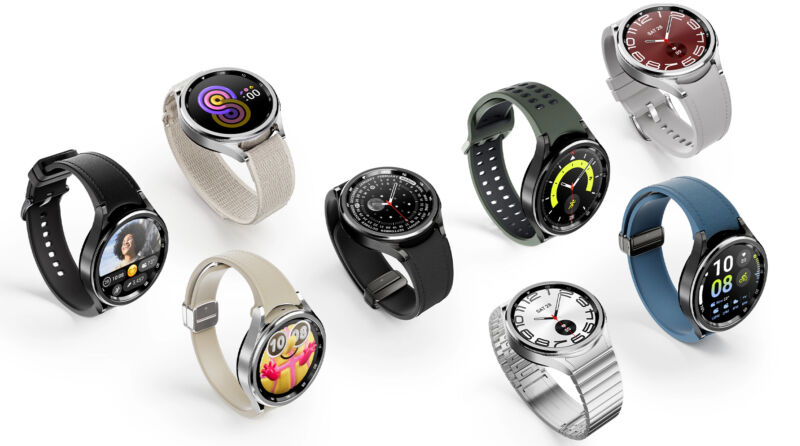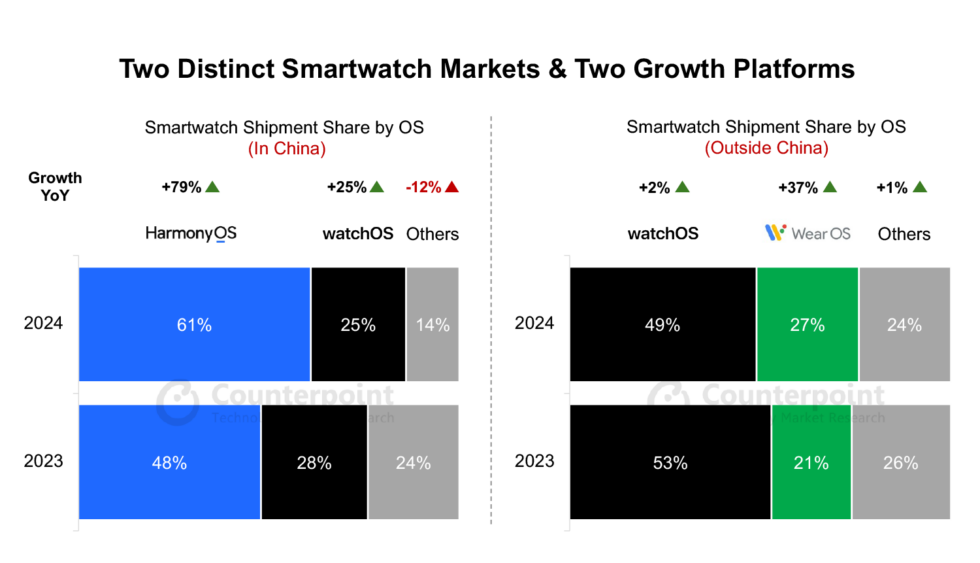“Half as good as an Apple Watch” sounds about right —
Counterpoint Research projects 27 percent market share this year to Apple’s 49.

Enlarge / The Samsung Watch 6 classic.
Samsung
Wear OS was nearly dead a few years ago but is now on a remarkable comeback trajectory, thanks to renewed commitment from Google and a hardware team-up with Samsung. Wear OS is still in a distant second place compared to the Apple Watch, but a new Counterpoint Research report has the wearable OS at 21 percent market share, with the OS expected to hit 27 percent in 2024.
Counterpoint’s market segmentation for this report is basically “smartwatches with an app store,” so it excludes cheaper fitness bands and other, more simple electronic watches. We’re also focusing on the non-China market for now. The report has Apple’s market share at 53 percent and expects it to fall to 49 percent in 2024. The “Other” category is at 26 percent currently. That “Other” group would have to be Garmin watches, a few remaining Fitbit smartwatches like the Versa and Ionic, and Amazfit watches. Counterpoint expects the whole market (including China) to grow 15 percent in 2024 and that a “major part” of the growth will be non-Apple watches. Counterpoint lists Samsung as the major Wear OS driver, with OnePlus, Oppo, Xiaomi, and Google getting shout-outs too.

Enlarge / 2023 are actual numbers, while 2024 is a forecast.
China is a completely different world, with Huawei’s HarmonyOS currently dominating with 48 percent. Counterpoint expects the OS’s smartwatch market share to grow to 61 percent this year. Under the hood, HarmonyOS-for-smartwatches is an Android fork, and for hardware, the company is gearing up to launch an Apple Watch clone. Apple is only at 28 percent in China, and Wear OS is relegated to somewhere in the “Other” category. There’s no Play Store in China, so Wear OS is less appealing, but some Chinese brands like Xiaomi and Oppo are still building Wear OS watches.
For chipsets, Apple and Samsung currently hold a whopping two-thirds of the market. Qualcomm, which spent years strangling Wear OS, is just starting to claw back market share with releases like the W5 chipset. Of course, Samsung watches use Samsung chips, and so does the Pixel Watch, so the only places for Qualcomm watches are the Chinese brands with no other options: Xiaomi, Oppo, and OnePlus.